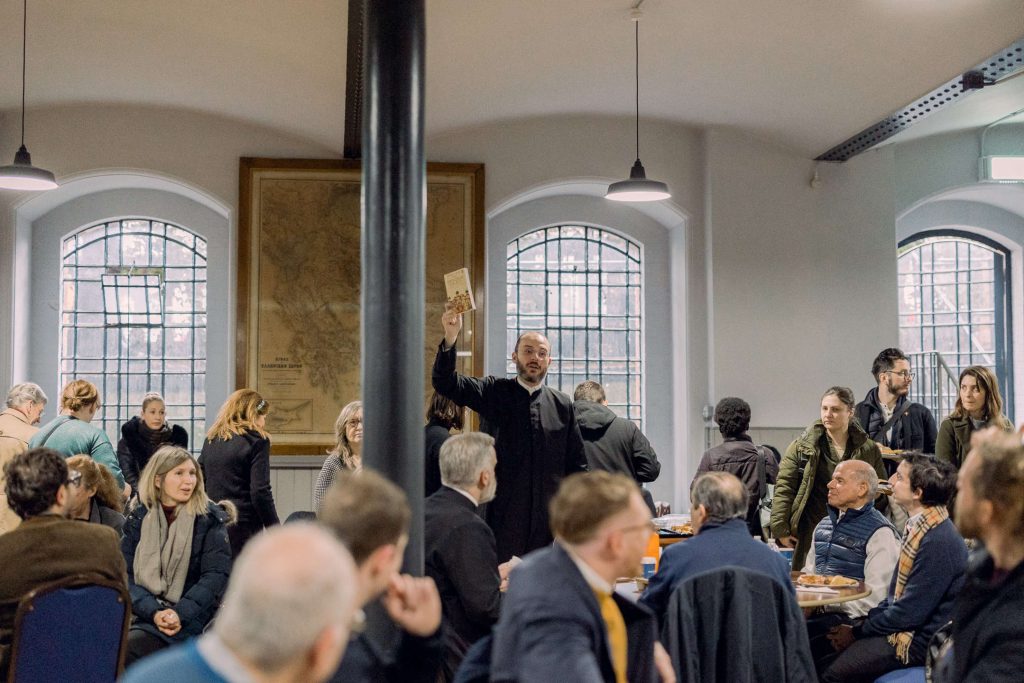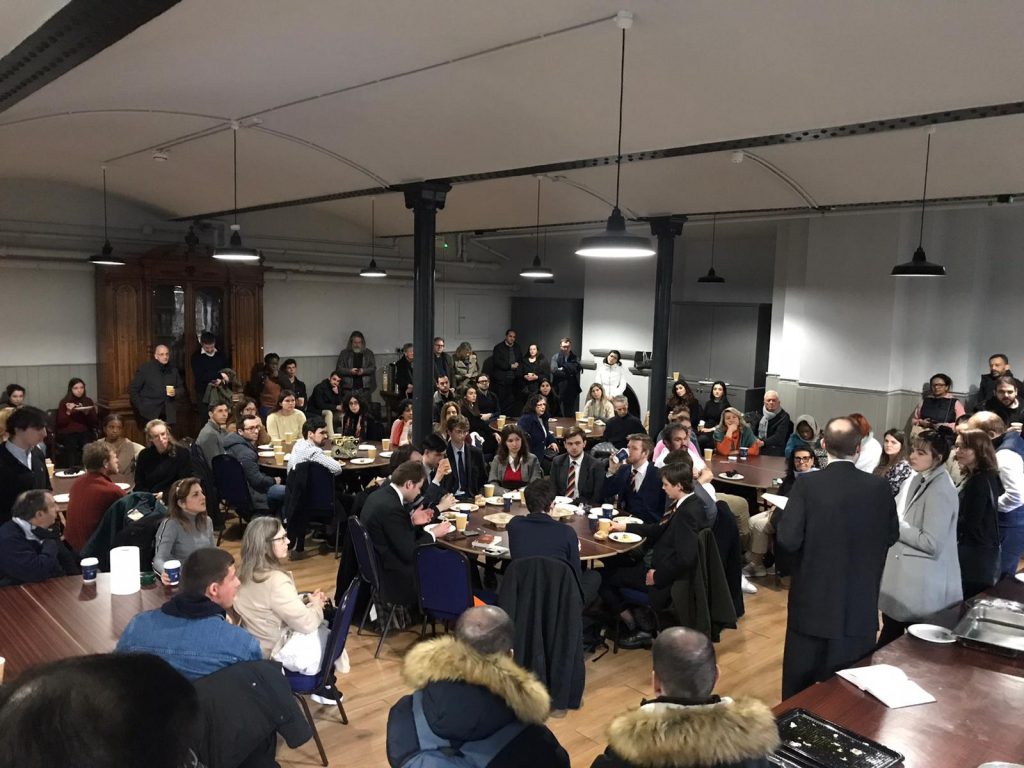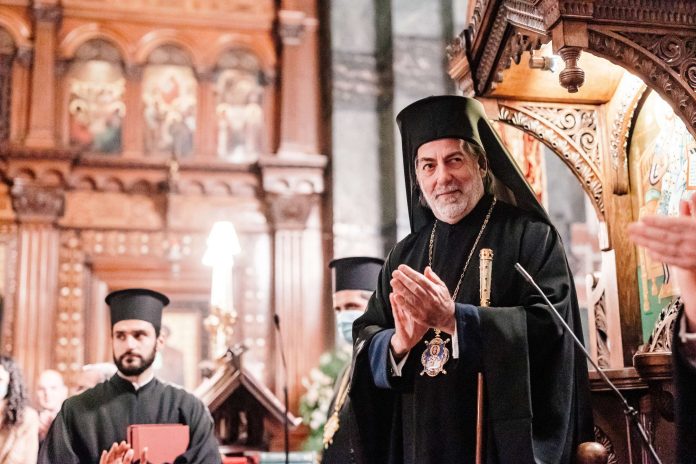The V. Rev. Archimandrite Nephon Tsimalis
As Chancellor of the Holy Archdiocese of Thyateira and Great Britain, I recently received a great number of e-mails and letters in response to an article on the internet. This article mentioned our Archdiocese’s ‘Discover Orthodoxy’ adult catechism course, which is hosted by the historic Greek Orthodox Cathedral of the Divine Wisdom in Bayswater, London. The 8-month course consists of once-a-week 45-minute online classes. At the conclusion of the course, participants are offered the opportunity to be baptized into the Holy Orthodox Church. It was this most magnificent mass baptism written about in the article that drew the attention of so many faithful around the world.
The messages I received were written by a variety of people, some were seekers interested in a formal introduction to Orthodox Christianity; some were people who are already baptized Orthodox Christians with a desire to learn more about their faith, and some messages were even from other clergy inquiring about the structure of this initiative.
My first reaction to this overwhelmingly response to our catechetical program was to give glory to God for the surge of activity and growth that our Archdiocese has experienced in these past years. It is the simple, yet focused nature of His Eminence Archbishop Nikita’s pastoral approach that has spurred this growth. His Eminence encourages the clergy and laity of his flock to invest their efforts in the development of the liturgical, educational and charitable work of the Orthodox Church in Great Britain—a land which is thirsting for a unified witness of Orthodoxy. The liturgical aspect of this ministry refers, of course, to the sacramental life of the Church, especially communing the Holy Eucharist, which grounds and nourishes all our other efforts in Christ. The educational aspect refers to the evangelization and even re-evangelization of the people who come to the Church with a desire to learn about its history and theology. The charitable aspect is the practical side of the theology being taught; it is the outpouring of gifts and talents that the members of the Body of Christ freely receive from our Lord.
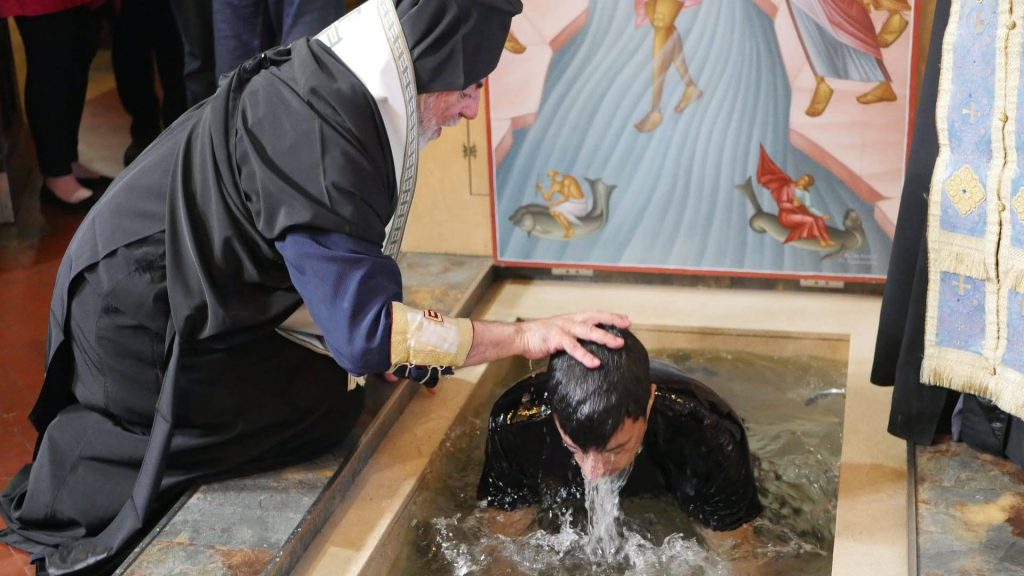
The Archdiocese of Thyateira and Great Britain is an eparchy of the Ecumenical Patriarchate of Constantinople, referred to fondly to as our “Mother Church”. Our Archbishop is especially steeped in the ecumenical ethos and tradition of the Ecumenical Patriarchate, which teaches us to strive to transcend the strong temptation of nationalistic divisions and to address the Gospel message to people around the globe without distinction. Archbishop Nikitas was himself born and raised in another eparchy of the Ecumenical Patriarchate, the Greek Orthodox Archdiocese of America, and was consecrated as the first-ever Metropolitan of Hong Kong and South East Asia, where he served for over a decade. This diverse background and unique combination of experiences of our Archpastor has imbued him with a deep understanding of the complexities of mission, of life in countries that do not have predominantly Orthodox or even Christian population, and of the importance of balancing the ethnic identity of a diaspora community with the ecumenical message of the Gospel in a mutually inclusive and constructive manner.
His Eminence has also decisively emphasized the importance of transparency and accountability at every level and in every facet of the Church’s ministry, from the Archdiocesan Headquarters to the smallest parish. Beyond the scope of financial matters, another important element of transparency and accountability is an insistence on communicating through the predominant language spoken by the members of his flock. This has been a priority for His Eminence: to welcome newcomers with ample opportunities to worship in their own language, as well as to reach out to the second, third, and subsequent generations of the children of immigrants who are far more comfortable communicating in English. By carefully removing certain linguistic obstacles, we are able to welcome a broader spectrum of people into our communities and to celebrate unhindered our unity in diversity as spiritual children of the Holy and Great Church of Christ.
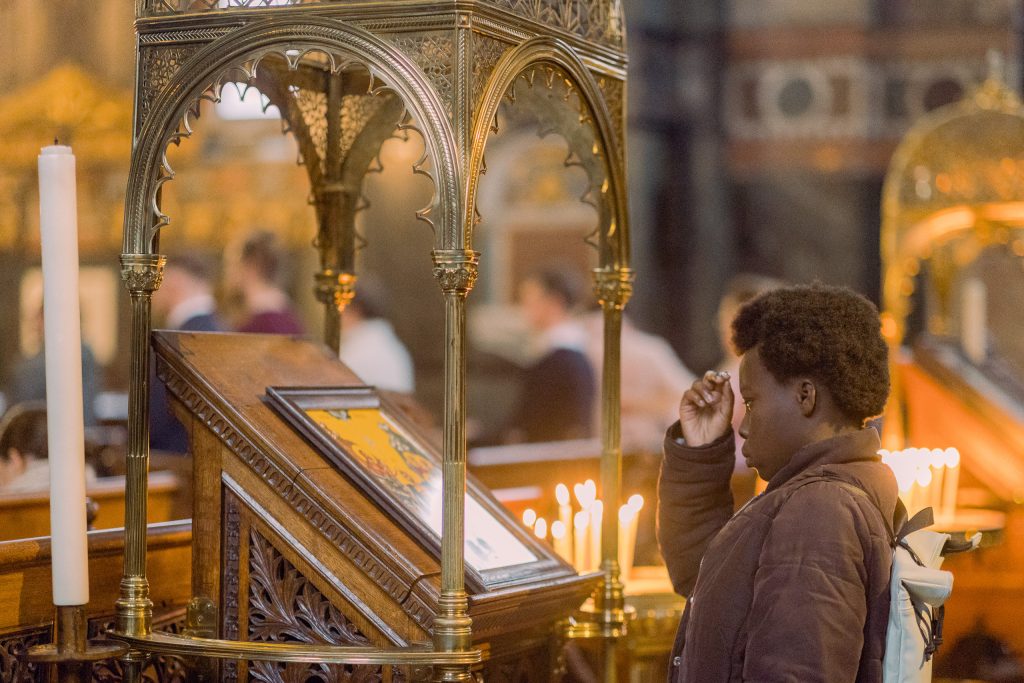
The early days of the Archbishop’s ministry coincided with the circumstances of the global COVID-19 pandemic and government lockdown measures. Even though the Archbishop himself does not personally use any social media, technology played a significant role during that time. His Eminence directed that the ministries transition online during periods of lockdown. His Eminence himself was a quiet, yet always present participator in these ministries, as he joined many of the video conference call lectures together with his faithful. The marvels of modern telecommunication are, indeed, something to be grateful for; however, by placing his trust first and foremost in the sacraments and in prayer, our Archbishop has grown the breadth and depth of the “reach” of our Archdiocese exponentially.
I myself arrived in Great Britain shortly after His Eminence, serving first as Director of his Private Office and now as Chancellor of the Archdiocese. Similar to His Eminence, I have also been blessed with a diverse experience that combines experiences of Orthodox tradition in the West, as well as in the East; I was born and raised in the United States by immigrant parents and I served at the Ecumenical Patriarchate for nearly 12 years. At the request of His Eminence and with his blessing and encouragement, I have been working to identify and respond to the pastoral needs of the people of God, young and old, and from every background
Personally, the need I see on a daily basis and the thirst for the presence of the Church in people’s lives is very great. I have seen no lack of engagement and a steady increase over time from the faithful of our Archdiocese, especially the young adults, as well as the inquirers who write to me on a nearly daily basis. The activities we organize may range from lectures and educational seminars to more casual social events (‘Learning and Living the Liturgy’ online weekly lectures, ‘Discover Orthodoxy’ online weekly catechism, in-person seminars on psychological well-being lead by qualified professionals, dinner-and-a-movie nights, the ‘Archdiocesan Lates’ book club series, the ‘Enlightened Evenings’ young adult dining events, pilgrimages, and more).
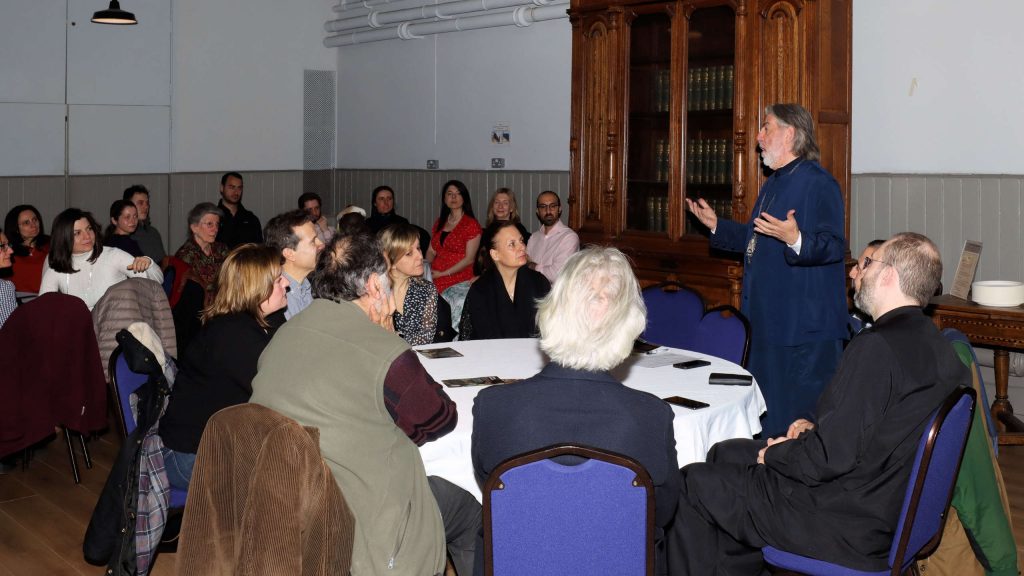
However, I must report that out of all these activities offered, the liturgical events that we organize undoubtedly enjoy the highest levels of participation. These include special celebrations of the Divine Liturgy, evening vigils, and compline services, all of which are conducted almost entirely in English. I am especially happy that this is the case, as participation in the Sacramental Life and our synaxes of communal prayer and praise are the very reason for our existence and the truly transformative aspect of the ministry.
More specifically, we currently celebrate the Divine Liturgy in English every Saturday of the month, each time at a different church around London, on a rotation. When hosted at the historic Cathedral of the Divine Wisdom, we may surpass 250 attendees at our English-language Liturgies, with the average age being 28-30 years old. Also, St. Andrew’s Cathedral in Kentish Town, London offers an English-language Liturgy two Saturdays per month, with similar attendance and demographics. St. Barnabas Church in Wood Green has also recently inaugurated a Saturday Divine Liturgy and their numbers are growing. Indeed, the common experience is that the churches are filling with young people from diverse backgrounds, before our very eyes! By God’s grace, this is a work in progress and we are actively making adjustments to find optimal percentages of English and Greek language-use for different situations and contexts.
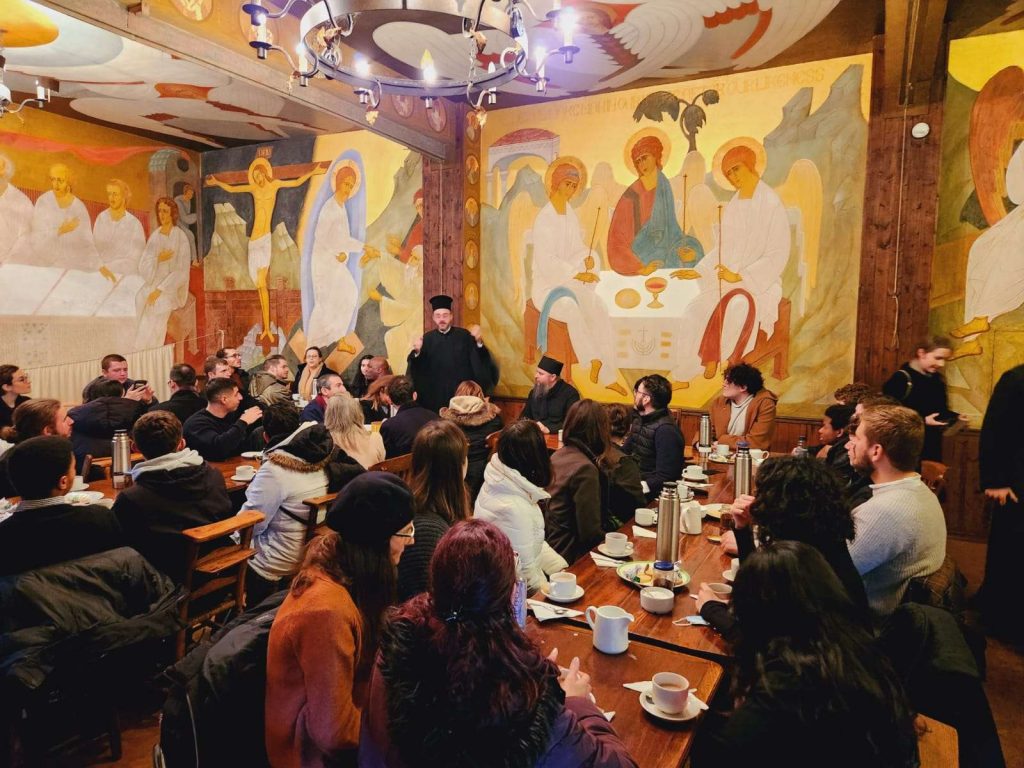
Guided by our convictions and our faith in the liturgical life and communion of our Church, we are simply responding to the needs and requests of the faithful, especially those who belong to younger generations. We are meeting them here and now where they are, trying our best to address the complexities of multicultural life in the West, and the challenges of a constantly developing society and economy. In the end, the strategies and approaches I mentioned are the sum of our humble efforts and the rest, of course is up to God. Our only hope and goal is to call all people to the Ark of Salvation, to share in the life-giving and transformative love of our Lord Jesus Christ. Now is the day of salvation!
